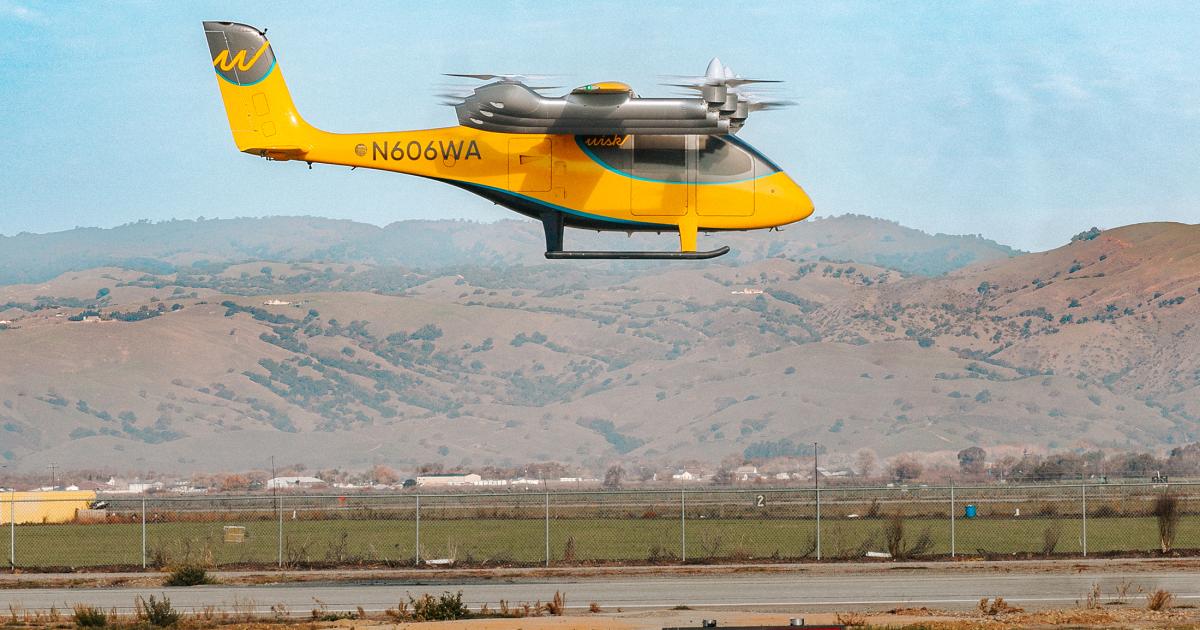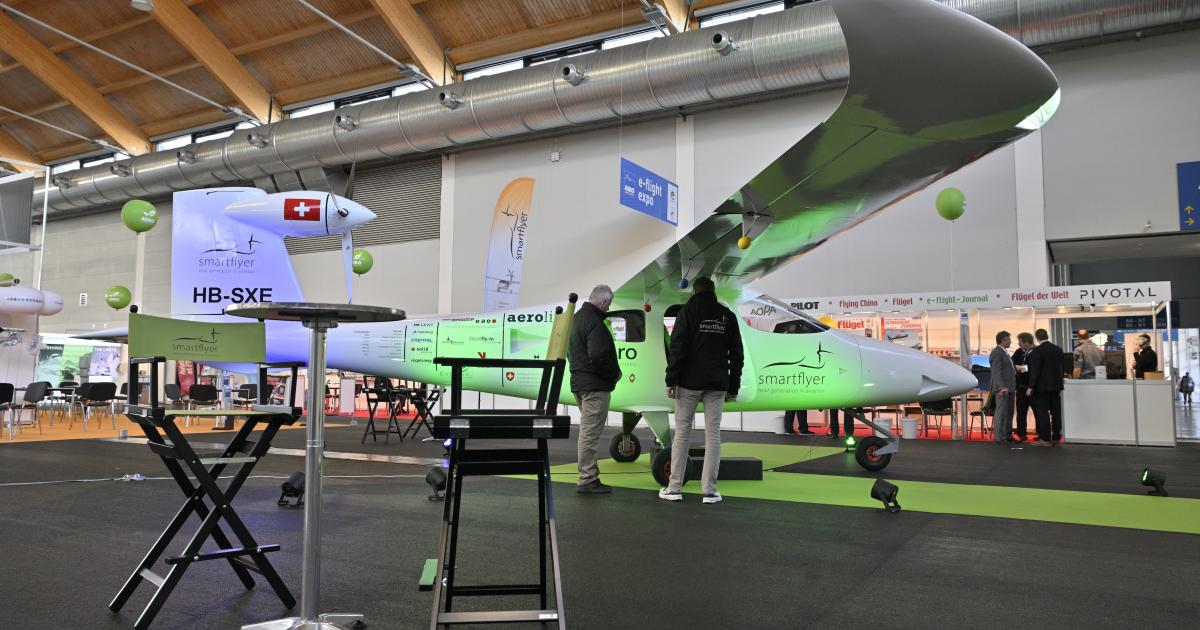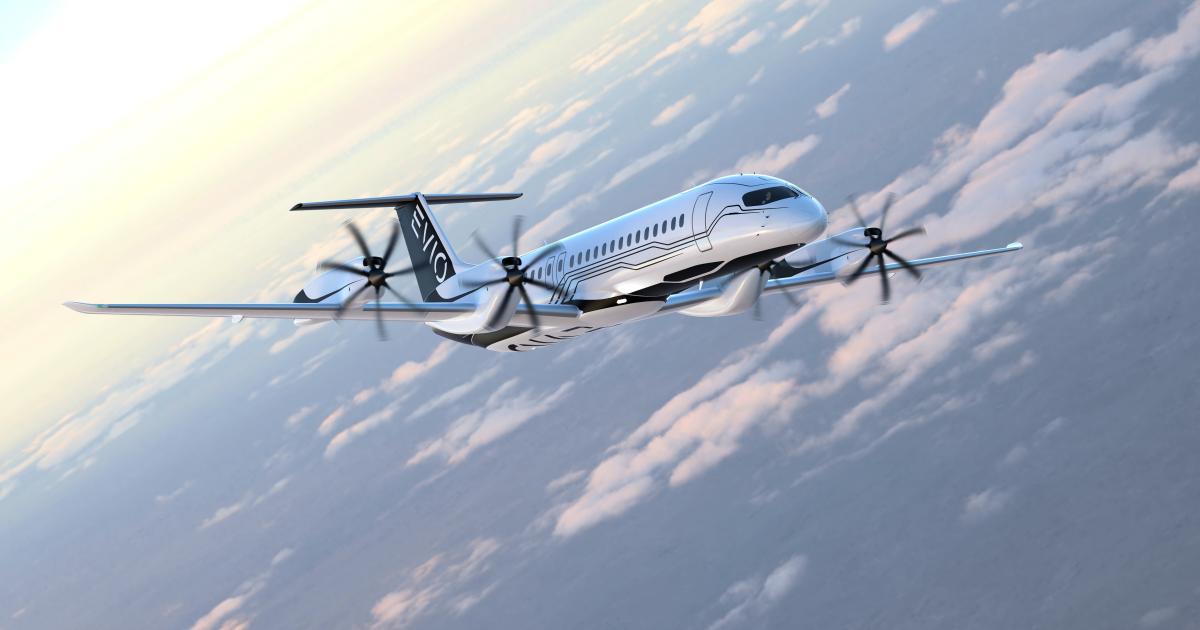Latest FutureFlight Videos
All Videos
FUTURE FLIGHT
Sign up for our free newsletter
News and analysis covering cutting-edge aviation technology and business models, including zero-carbon propulsion, eVTOL aircraft, automation and autonomy, and new infrastructure.
FutureFlight News
FutureFlight
Savback Commits to 300 of Mayman's Speeder UAVs for European Defense Applications
The Swedish company is Mayman Aerospace's distributor in the Nordic countries, where concerns are increasing about Russian hostility.

Aircraft
Asia Well Placed For Leading Role in Advanced Air Mobility
New eVTOL aircraft could transform urban public transportation

Rotorcraft
Airbus Set To Start Racer High-speed Flight Trials
The hybrid-electric design features a box wing and a pair of pusher propellers

FutureFlight
Dubai Gives Joby Exclusive Rights to Local eVTOL Air Taxi Market
Plans announced with the emirate's Road and Transport Authority call for commercial flights to start no later than early 2026.

FutureFlight
Orlando Confirmed as Hub for Lilium's Regional eVTOL Services in central Florida
Florida is the first anticipated U.S. market for regional air services using the six-passenger Lilium Jet.

FutureFlight
Air National Guard Trains with Beta's Alia Electric Airplane Prototype
The Air National Guard spent a week training with Beta Technologies' Alia prototype at the Air Dominance Center in Savannah, Georgia.

FutureFlight
With Military Backing, Piasecki Steps Up Development of Hydrogen-Powered PA-890 Helicopter
The hydrogen-powered PA-890 slow-rotor wing compound helicopter is expected to be able to carry a pilot and up to seven passengers on trips of over 200 nm.

FutureFlight On The Radar
NTSB Confirms Propeller Failure Caused Crash of Joby's eVTOL Prototype
Joby says learnings from component failure have been implemented on later prototypes
FutureFlight
FAA Approves Joby's Certification Plan for eVTOL Propulsion System
The FAA has accepted Joby Aviation’s certification plan for the electric propulsion system on its five-seat eVTOL aircraft.

FutureFlight
Joby and Archer Secure Part 145 Certificates for Aircraft Maintenance
Rival California-based eVTOL developers Joby and Archer have both obtained FAA Part 145 repair station certification

Aircraft
Bombardier Shipments Reach 138 in 2023, Expected To Jump in 2024
Deliveries were up by 15 units on the year

FutureFlight
EHang Rolls Out 'Low-altitude Economy' eVTOL Air Service Plans in Guangzhou
The Chinese manufacturer also announced the export price for its two-seat autonomous EH216-S eVTOL aircraft

FutureFlight
Beta’s Alia Electric Aircraft Touches Down in Louisiana to Visit Partner Bristow
Beta Technologies’ Alia prototype conducted a public flight demonstration in Louisiana on February 7, marking the first flight of an electric aircraft in the Bayou State, according to the Vermont-based manufacturer.

FutureFlight
Reliable Robotics Wins Military Airworthiness Approval for Remotely Piloted Caravan
The U.S. Air Force has awarded military airworthiness approval for Reliable Robotics’ remotely piloted Cessna 208 Caravan.

FutureFlight
Australian Airline Group Signs Up For AMSL Vertiia eVTOL Aircraft
Aviation Logistics aims to use the hydrogen-electric Vertiia for passenger, cargo, and aeromedical transport beginning in 2027.

FutureFlight
Cosmic Aerospace Raises $4.5 Million for Electric Airliner
According to the company, its 24-passenger Skylark could have an unparalleled range for an all-electric aircraft of more than 600 miles on a single charge.

FutureFlight
Heart Raises a Further $107 Million for ES-30 Hybrid-electric Airliner
The manufacturer aims to achieve a first flight with the 30-seat aircraft in 2026 and hopes to receive EASA type certification in 2028.

FutureFlight
Archer Revs Up Flight Tests With Midnight eVTOL Air Taxi
The Midnight eVTOL prototype is picking up speed in preparation for its first transition flight.

FutureFlight
Loganair Lays Plans For Hydrogen-Powered Flights From Scotland's Orkney Islands
The airline wants to use Britten-Norman Islander aircraft converted to use a hydrogen propulsion system developed by Cranfield Aerospace Solutions.

FutureFlight
EHang Prices Its Two-Seat Autonomous eVTOL Aircraft At $334,000
The EH216-S received a Chinese type certificate in October 2023 and the manufacturer has started deliveries on a small scale










